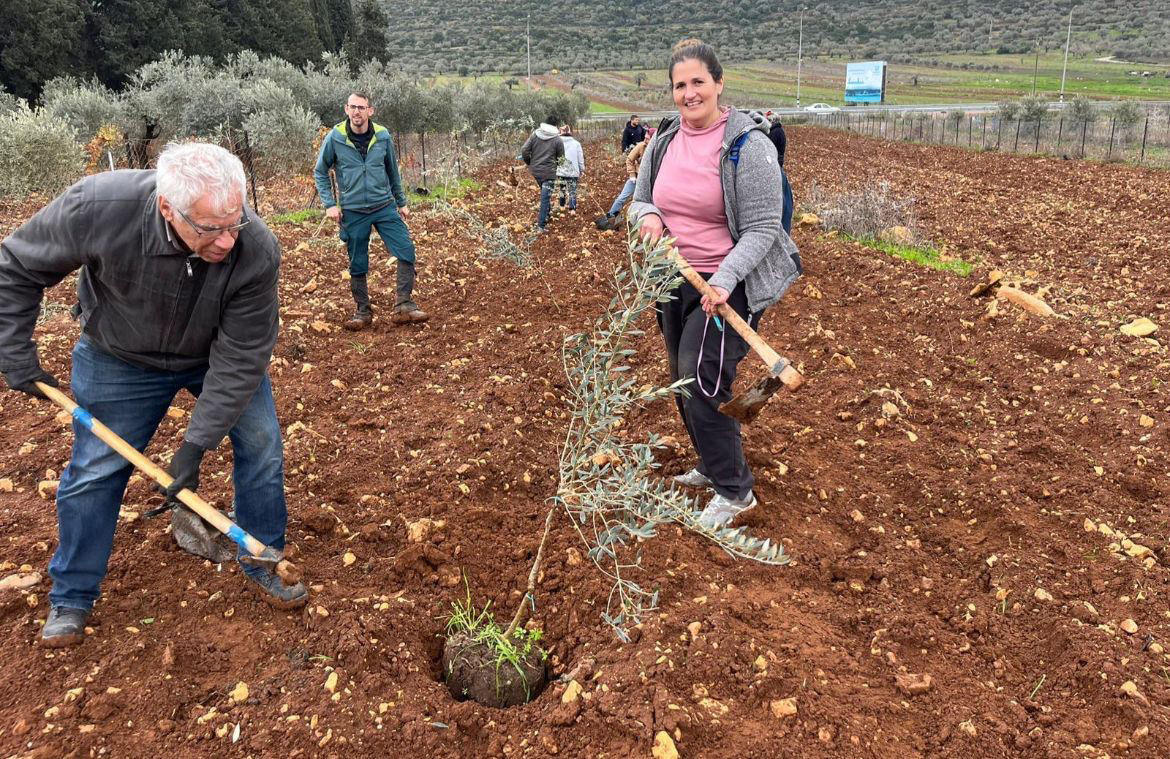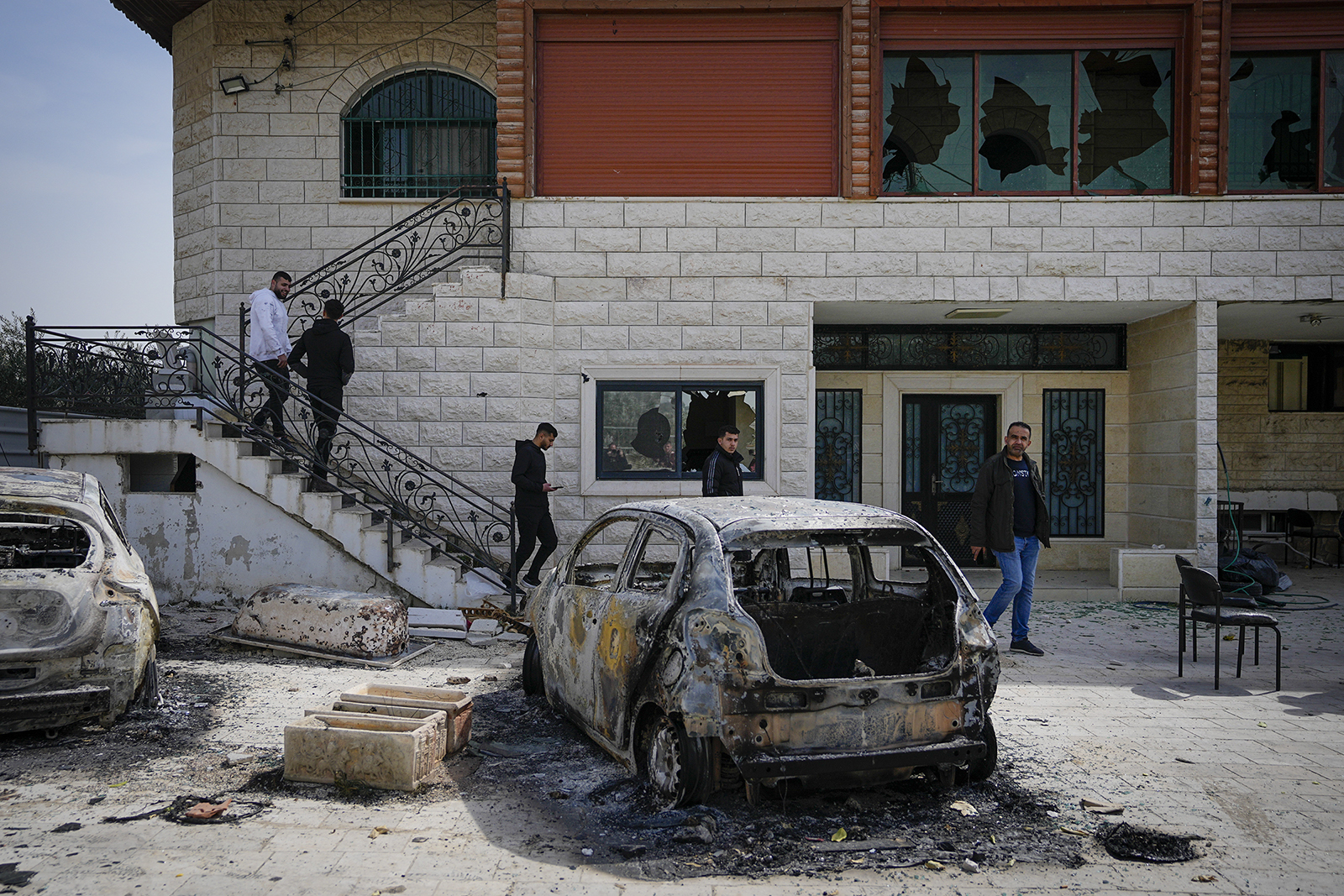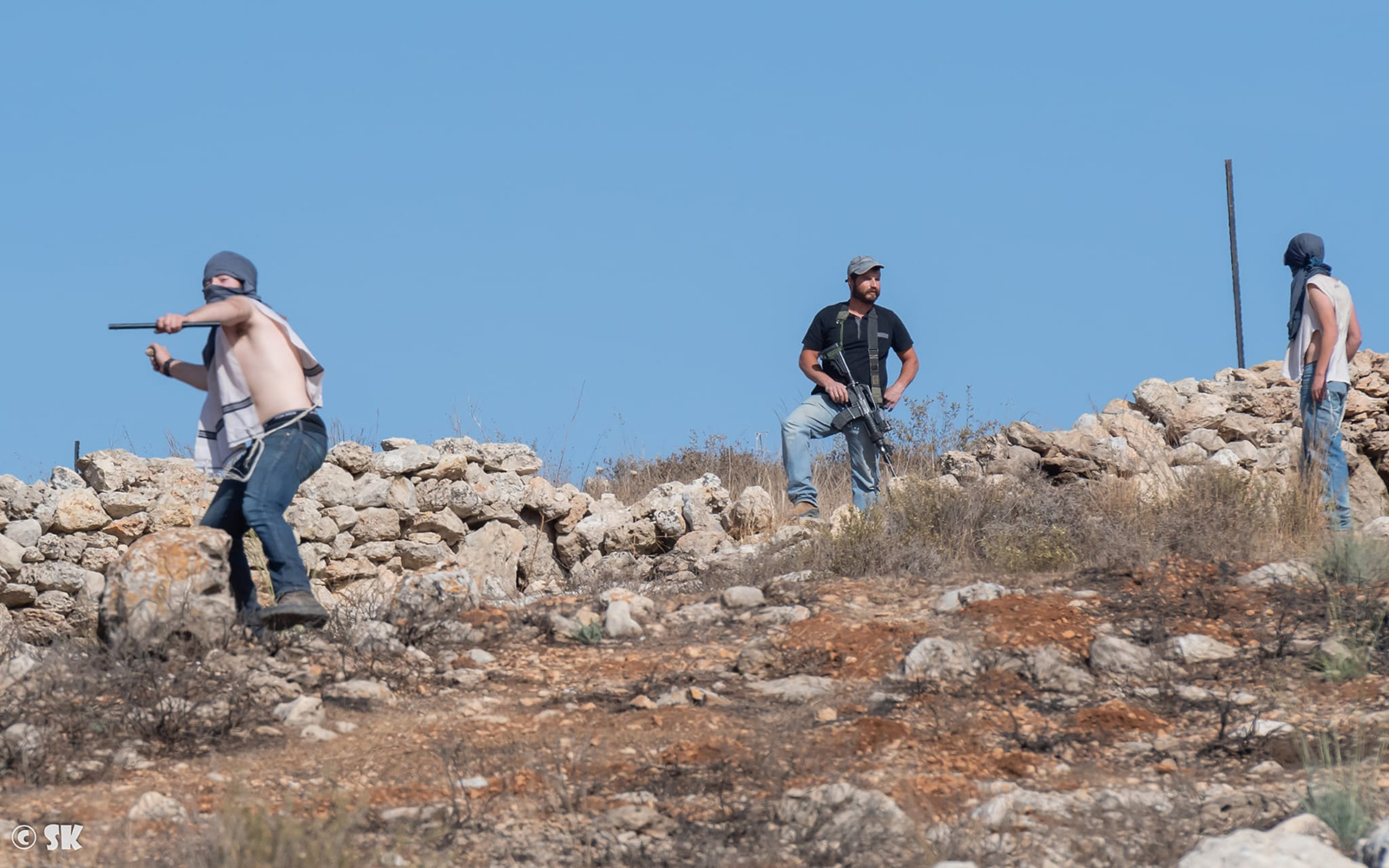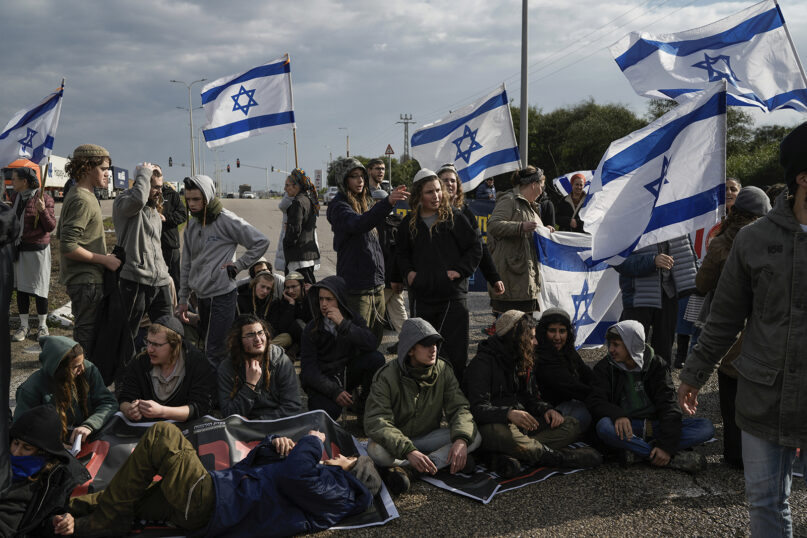JERUSALEM (RNS) — Attacks by Jewish settlers on Palestinians in the West Bank have continued despite sanctions that President Biden introduced on Feb. 1 against settlers accused of violence. So far, four Israelis have been denied access to any property and bank accounts they may have in the U.S. and are barred from entering the country. France and the United Kingdom have also sanctioned more than 30 individuals.
“We are talking about Jewish terror,” said Avi Dabush, the CEO of Rabbis for Human Rights, an Israeli nongovernmental organization. “Their ideology stems from religious fanaticism.” According to that ideology, only Jews have the right and even obligation to live in what was once the biblical Land of Israel, and Palestinians are not welcome.
Although the young men and teenagers who commit violence comprise only a tiny fraction — estimates range between a few hundred to 3,000 or 4,000 — of the nearly 500,000 Jews who live in the West Bank, their actions have long inflamed tensions between Jews and Arabs. The tensions have only grown since the start of the Israel-Hamas war.
In recent weeks, young Jewish extremists have also set up makeshift roadblocks at the Kerem Shalom border crossing in southern Israel, attempting to block trucks carrying humanitarian aid from reaching Gaza. As long as Hamas refuses to release the 134 Israeli hostages it still holds captive across the border, they say, they will try to prevent aid from passing into the war-torn territory.
Dabush welcomes the sanctions but told RNS they may do little to deter hardline religious extremists.
“They believe in Jewish supremacy and see revenge, violence and force as the only tool to handle conflict,” he said. “They say this land is holy and that it’s ours, in God’s name. It’s the promised land, and not only in present-day Israel but also Jordan, Lebanon, Iraq and Egypt. They say there is no Israeli occupation because the land is Jewish land.”
The extremists are trying to push Palestinians out through intimidation, Dabush said, often yelling at children on their way to school, setting fire to orchards or attacking homes, cars and stores in Arab villages.

Members of Rabbis For Human Rights participate in a planting event on the land of a Palestinian who was killed by Israeli settlers. (Photo courtesy Rabbis For Human Rights)
Settler violence started long before the Oct. 7 war. Every October for years, dozens of members of Rabbis for Human Rights have traveled to the West Bank to act as human shields between Palestinian farmers picking olives from their orchards and Jewish settlers who routinely harass or physically attack the farmers and sometimes destroy their trees.
A year ago several hundred Jewish settlers and extremists rampaged through Huwara and other West Bank villages, leaving one Palestinian dead and 100 injured.
There have also been numerous Palestinian attacks against Israelis. Palestinians committed at least 2,600 acts of violence in the West Bank between Oct. 7 and Jan. 15, according to a report by the Hatzalah Judea and Samaria rescue organization, including 551 fire bombings, 760 instances of rock throwing, 12 attempted or successful stabbings and nine vehicular attacks, World Israel News said.
But the number of attacks against Palestinians and their property reached an all-time high in 2023, and the two months following the Oct. 7 Hamas massacre were especially violent, according to a Jan. 1 report by the Yesh Din, an NGO that monitors Jewish-led violence in the West Bank. “In these incidents, hundreds of Israelis raided Palestinian villages, setting fire to dozens of homes and vehicles,” the report said.

Palestinians inspect a damaged house and scorched cars in the town of Hawara, near the West Bank city of Nablus, Monday, Feb. 27, 2023. Scores of Israeli settlers went on a violent rampage in the northern West Bank, setting cars and homes on fire after two Israeli settlers were killed by a Palestinian gunman. (AP Photo/Ohad Zwigenberg)
Rabbi Arik Ascherman, executive director of Torat Tzedek-Torah of Justice, an Israeli human rights organization, welcomes the sanctions, especially at a time when violent settlers “feel emboldened” to attack Palestinians and their property. “More than ever, settlers are given the message that they are immune from prosecution for terrorizing Palestinians,” said Ascherman, who was personally attacked by one of the four men targeted by the new American sanctions.
The settlers may have been encouraged by statements from members of Netanyahu’s government, which depends on the settlers’ support at the ballot box. Israeli Finance Minister Bezalel Smotritch, a fervent settlement supporter who lives in the West Bank, called Biden’s executive order “an antisemitic lie” that smears not only Israel’s “pioneering settlers” but the State of Israel.
Israel captured the West Bank, along with East Jerusalem, from Jordan during the 1967 Middle East War. Though the international community considers both to be illegally occupied, Israel considers Jerusalem part of its united capital and the West Bank “in dispute” until Israelis and Palestinians agree on final borders.
But many Jews see their ties to the land as going far deeper than military gains. Rabbi Kenneth Brander, president of the Ohr Torah Stone educational network, rejects settler violence, whether verbal or physical, as “inconsistent with the values of Judaism and Torah.” But he also rejects claims from many Palestinians and their allies that Jews have no historical or religious ties to the West Bank and East Jerusalem and therefore have no right to live there.
“Any time I travel in Judea and Samaria, I’m traveling the same road that Abraham and Isaac walked on, the same road the ancient Jews took when they went to the First and Second Jewish Temples,” Brander said of the biblical patriarchs. “You feel the DNA of the Jewish people throughout the hills and the prophesy of the ancient prophets coming alive right in front of you.”
Opponents of Biden’s executive order dismiss it as having more to do with American electoral politics. “It’s a political ploy aimed at garnering support for Democrats in Michigan, which has a large Arab population,” Mark Zell, a prominent American Israeli lawyer, said. Biden embraced Israel in the early days of the war, and his administration has declined any talk of a permanent cease-fire unless Hamas releases the Israeli hostages, prompting many Arab Americans to vow to not vote for the president.

Far right-wing religious Jewish settlers attack people who were helping Palestinian farmers with a harvest day, organized by Torat Tzedek-Torah of Justice, in the West Bank. (Photo by Shai Kendler Megaphone News)
Zell, who lives in the West Bank, said the sanctions’ “broad language” is also illegal. The executive order, he claims, could be used not only against violent settlers, but against all settlers, anyone who contributes to settler causes, Israeli government officials and the State of Israel itself.
“These sanctions could disrupt the lives of half a million law-abiding Israeli citizens who abhor violence of any kind. Yes, there are bad apples, but many so-called violent settlers were acting in self-defense,” Zell said.
Zell and others have formed a legal team in order to challenge the executive order, claiming it is “unconstitutional” and a “violation of federal law.”
“The executive order is really unprecedented. It focuses on a very small group of people who, the order says, are harming American national security,” Zell said. “It is deliberately highly ambiguous, targets non-U.S. persons, but doesn’t clarify the status of American-Israel dual nationals. Anyone opposed to a two-state solution could see their property seized and their bank accounts closed without notice.”
The sanctions “are draconian,” Zell said.





